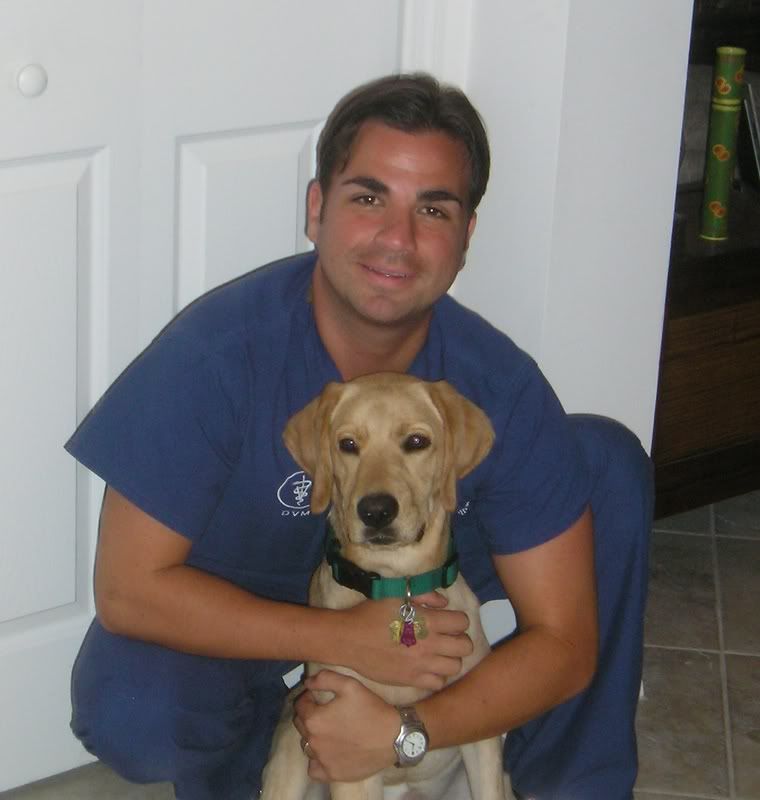Krista Schultz highlighted a little known and surprising fact in her article in the May 2008 issue of DVM News Magazine, that veterinarians have a four times greater suicide rate proportionally than the general population, and two times greater than that of any other health profession. According to the article, the basis for this information came from studies conducted in the UK.
The reasons for this disproportionally higher rate of suicide among veterinarians is not clear, but the article hints at certain factors that may contribute, such as job stress, euthanasia acceptance, and lethal drug access. Regarding job stress or job dissatisfaction, Kristin Schultz's article indicates that depression is a factor predisposing to suicide because "those choosing to join the veterinary profession may have predisposed personalities that ultimately lead to depression...." Regret may also be a factor, according to the article, in that only 53% of practicing veterinarians would become a veterinarian all over again now knowing the reality of the profession - that is almost half that do not feel that the profession has lived up to their expectations.
With regard to euthanasia acceptance, veterinarians "may experience uncomfortable tension between their desire to preserve life, and their inability to treat a case effectively, which may be ameliorated by adapting their attitudes to preserving life to perceive euthanasia as a positive outcome." The article insinuates that this adjusted attitude toward death may subsequently facilitate self justification and lower inhibition toward suicide as a rational solution to their own problems.
While Ms. Schultz's article does not arrive at any concrete conclusions, I will conclude this post by offering my own take as a veterinarian why suicide rate may be disproportionally high in veterinary medicine. In my case, prior to joining my first private practice as a newly graduated vet, I had idealized the profession, not only as a noble pursuit of the highest order (which I still feel is the case), but also that the public perception of the veterinarian would reflect that. On my very first case, I found out how mistaken I was, when I was accused of price gouging by a client furious that I had ordered urinalysis and urine cultures for a patient exhibiting signs of lower urinary tract disease. What's more, rather than decline the tests which she was well within their right to do while still at the office, she accepted, got her medication, then later called to yell at me over the telephone.
My first case was but one of many times that people have accused me price gouging and much worse since then, all the while myself practicing with utmost integrity and honesty, only trying to do my very best for my patients. That has and will continue to be my biggest frustration with veterinary medicine.
While this will not lead me to suicide, I can clearly see why a person prone to depression could be led down that dark path over time. No matter how much one tries to realize that the real problem lies with the people that use vets as scape goats for their own financial troubles, consequently hurling unwarranted, hurtful accusations and judgements, it never ceases to hurt when one pours one's heart and soul into helping an animal, yet is considered by an owner to be nothing more than a scamming used car salesman.
But, I have enough wonderful clients that truly appreciate the dedication we put into helping their animals and gain more every day, that make what we do worth the effort. For that reason and the fact the its about helping the furry ones with no voice after all, after seven years of practice, I remain one of the 53% that would be a vet all over again, as, aside from pitching for the NY Yankees, there is nothing else I can see myself ever wanting to do. For the 47% that do not agree with me, however, I truly understand.
Thursday, May 22, 2008
Subscribe to:
Post Comments (Atom)




1 comment:
That is very interesting. I was never deluded into thinking the vet med was just all fun and games, playing with fuzzy creatures all day. But I never really considered how the mental stress from the frustrations the Doc described could wear down an idealist (I have long assumed that to sacrifice all the years of study with a lot less monetary reward and social status than MDs, that the majority of vets must be idealists).
Post a Comment